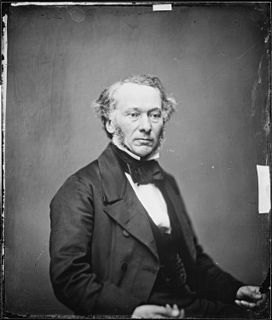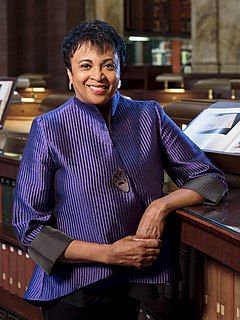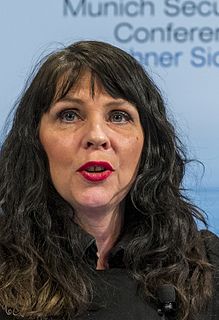A Quote by Wendell H. Ford
If information is the currency of democracy, then libraries are its banks.
Related Quotes
I hold all idea of regulating the currency to be an absurdity; the very terms of regulating the currency and managing the currency I look upon to be an absurdity; the currency should regulate itself; it must be regulated by the trade and commerce of the world; I would neither allow the Bank of England nor any private banks to have what is called the management of the currency.
The goal of the FED, as with all central banks, is three-fold: (1) to protect the largest commercial banks from their depositors, who occasionally exercise their contractual right to withdraw currency (the ungrateful cads); (2) to control entry of newcomers into the bankers' cartel (interlopers); (3) to keep the stock market from collapsing in a panic, thereby persuading depositors to withdraw currency
Children know that if they have a question about the world, the library is the place to find the answer. And someone will always be there to help them find the answer-our librarians. (A librarian's) job is an important one. Our nation runs on the fuel of information and imagination that libraries provide. And they are in charge of collecting and sharing this information in a helpful way. Librarians inform the public, and by doing so, they strengthen our great democracy.
Central banks are choosing to increase their gold holdings as a percentage of total reserves. They obviously think there is a reason to do that. It doesn't make sense to back up one currency with a hoard of other paper currencies. There needs to be a real anchor there. I think that central banks are well behind the curve. If you look at the percentage of above-ground gold controlled by central banks, it's historically low. Hence the fact that central banks are trying to increase their holdings. They've got a long way to go to get where they need to be.
We are privileged that the dollar is the "currency of last resort" and the most important currency in the world. Global commodities are priced in dollars. Central banks in other countries hold great quantities of dollars. The dollar was the safe harbor, the port in the storm during the credit crisis.
We survived for hundreds of years under the old banking structure. You'd have clearing banks, then merchant banks doing the racy stuff, and then building societies where you'd join a waiting list for a mortgage. But then banks started buying stockbrokers, doing mortgages, and you ended up with these big banking groups doing everything.
In tight economic times, with libraries sliding farther and farther down the list of priorities, we risk the loss of their ideals, intelligence, and knowledge, not to mention their commitment to access for all—librarians consider free access to information the foundation of democracy, and they’re right. Librarians are essential players in the information revolution because they level that field. They enable those without money or education to read and learn the same things as the billionaire and the Ph.D…In tough times, a librarian is a terrible thing to waste.

































